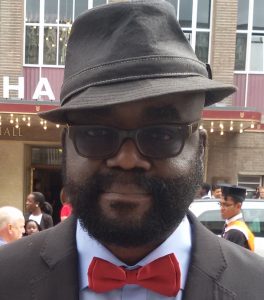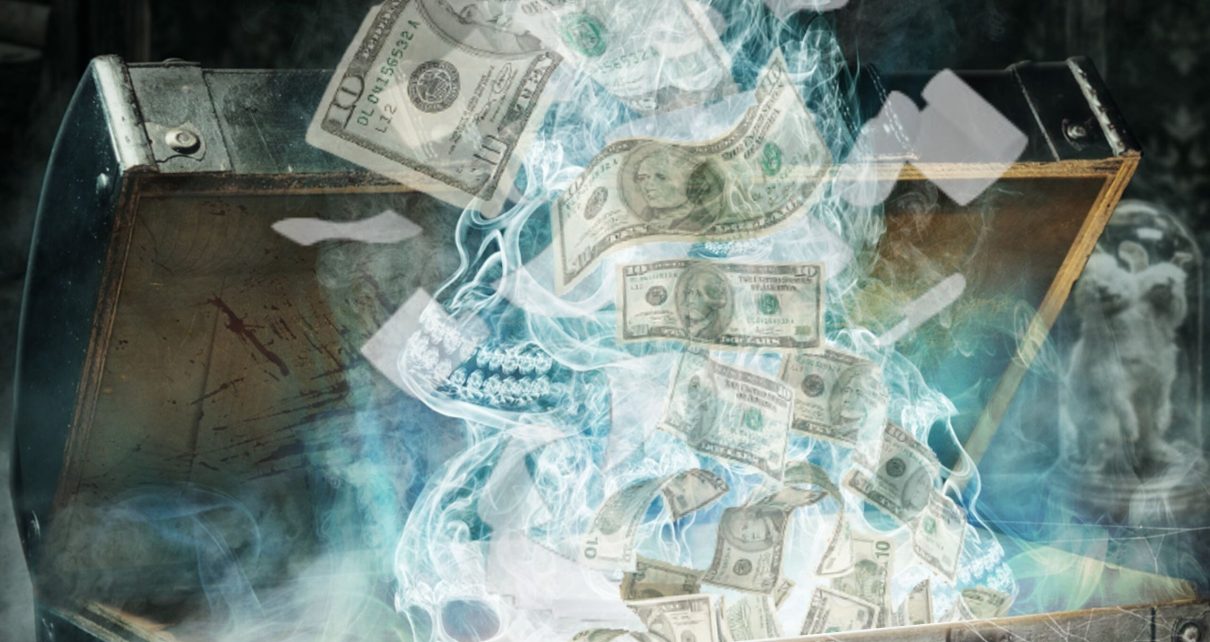
REPEAT AFTER ME: I will not be anyone’s fool; not now, not tomorrow, not ever!
The world inherited the word, Pandora, from the ancient Greek poet, Hesiod. In the poem, Works and Days, he told the story of Prometheus and Pandora. Prometheus had attempted to deceive the gods whose prefect was Zeus. In reprisal, Pandora and the “tribe of women” had been sent to the world. The jar given to Pandora by Zeus came with instructions that it must not be opened.
Pandora (meaning ‘all gifted) was the first mortal woman ever created — the ancient Greek version of Biblical Eve. Epimetheus forgot the warning of his brother Prometheus and made Pandora his wife. She carried a jar, which contained curses and one unknown last element which many commentators have interpreted as Hope.
Before Pandora’s arrival, man had lived free from evils, toil and illness. One day, she could no longer contain her curiosity; she lifted the lid of the storage jar. That was how terrible things, including disease, war, vice, toil, and the necessity to work for sustenance were released. Only one last element remained before the jar was hurriedly shut, but the deed had been done. Evil had entered the world.
The world has borrowed the word ‘Pandora’s box’ to describe any source of great and unexpected troubles, a Gordian knot, a jar of troubles, a can of worms, a wardrobe full of skeletons.
Politicians all over the world are thick-skinned. They shrug off criticisms with the ease of a duck shaking off water. If threatened with the opening of their pandora box, however, they become really attentive. But if you think you can make them contrite by publicising their hypocrisy and betrayal, you’re grossly mistaken. No public officer, especially politicians, would readily own up to an infraction of the law unless he’s operating in climes where institutions of governance and law enforcement are deeply entrenched.
Thanks to Premium Times and its global partners in what has now become the journalistic equivalent of a tsunami, we now know that, for many of our politically exposed persons and business elite, charity begins and ends abroad.
The investigative project, known as Pandora Papers, was facilitated by the International Consortium of Investigative Journalists (ICIJ). The group, comprising more than 600 journalists from 150 news organisations around the world, obtained a cache of 11.9 million confidential files which the journalists spent two years studying and sorting. The Pandora Papers are hitting the headlines more than five years after the Panama Papers revelations of 2016.
The epochal work generated a global list of publicly exposed persons who have stashed their loot in foreign climes. The jury is out on whether many of them acquired their wealth legally or otherwise but the list also includes fugitives, con artists and murderers. The Pandora Papers investigation is even bigger than the Panama Papers scandal which emerged in 2016 and covered around 11.5 million files totalling 2.6 three terabytes of data.
More than 100 billionaires (in US$) feature in the leaked data. So do well-known celebrities, religious leaders and business tycoons who use shell companies and incognito bank accounts to conceal their wealth and, in several cases, avoid paying the requisite tax in their country of origin.
To be sure, setting up or benefiting from offshore entities is not a criminal offence. Indeed, some people may have admissible security reasons for doing so. However, the stealth or confidentiality governing the operations are predictably attractive to well-connected treasury looters, tax dodgers, con artists and money launderers. The Pandora Papers expose many of such people.
How much does one human being need to live in comfort? Is a wealthy man obligated to stash a neat slice of his wealth in secret accounts to avoid paying taxes that could improve his home country? Is it morally justified to engage in subterfuge even if one was not breaking any law? It seems that it is the poor who ask such questions. The ultra-rich, from all the continents of the world, are seemingly unfazed by the noise that the Pandora revelations have generated.
In 2018, Kenya’s president, Uhuru Kenyatta, said: “Every public servant’s assets must be declared publicly so that people can question and ask: what is legitimate?” Now, he’s finding it difficult to answer that question following revelations that he and close relatives have more than $30 million investments abroad. He has so far ignored press enquiries on the subject.
Late Petr Kolbin, a childhood friend of Russian President Vladimir Putin, is on the list, along with other associates of the Russian strongman. They have been described as the ‘wallets’ in which Mr. Putin allegedly hides his loot. One woman who is said to have once been romantically linked to Putin pops up on the list too.
King Abdullah II of Jordan is reported to have secretly amassed $100m investments in property in Malibu, Washington and London. He has refused to answer any questions regarding the disclosures.
Former British prime minister Tony Blair and his wife Cherie bought a £6.5m office in Marylebone by acquiring a British Virgin Islands offshore company. No crime is insinuated, but the revelations simply show how one can navigate around existing laws to reduce tax liability. Also, the point is made, and validly too, that London is home to wealth managers, law firms, company formation agents and accountants set up to help the rich hide their wealth and avoid paying tax on such.
“Naija no dey carry last”, so goes a popular saying in Nigeria. Out of every five Africans on the surface of the earth, one is a Nigerian. In any sphere of life, for good or for ill, Nigerians are no pushovers. The country is therefore well represented in the eye-popping list of billionaires. It must be noted that there is nothing illegal in a private Nigerian citizen owning offshore accounts but the law requires full disclosure, especially for those taking public office.
Some of the ‘usual suspects’ are in the list. But what caused outrage in the country were names of people who had advertised themselves as the very definition of morality and good conscience. Former Senate President Bukola Saraki and his wife, Toyin, are named alongside Senator David Mark who preceded Saraki in office. Former Bayelsa Governor Diepreye Alamieyeseigha and his Delta State counterpart, James Ibori, are there.
The landmark investigations also showed the existence of a network of shell companies in offshore tax havens linked to Aliko Dangote and his brother, Sayyu Dantata. Some offshore companies were linked to Wale Tinubu, the CEO of Oando Plc. The late Prophet Temitope Joshua of the Synagogue Church of all nations was a member of the club. Gen. TY Danjuma, Globacom’s Mike Adenuga, Niger State Governor Abubakar Sadiq Sani Bello, Arik Air Chairman Joseph Arumemi-Johnson and his wife, Mary, former bank chairman Hakeem Bello Osagie and the late Ooni of Ife, Okunade Sijuade are among those identified in the well-researched exposé.
The list also includes a former Governor of Anambra State, Peter Obi; ex-Aviation Minister, Stella Oduah; the acting Managing Director of the Nigerian Ports Authority, Mohammed Bello-Koko; Governors Gboyega Oyetola and Atiku Bagudu of Osun and Kebbi states respectively. They have all denied any wrongdoing.
According to Transparency International (TI), Nigeria accounts for 35 per cent of Africa’s illicit financial outflows, estimated at between $15 billion and $18 billion annually. Imagine what could be achieved if that kind of money was invested in the continent. TI advocates that Nigeria strengthen its weak institutions and engender a culture of transparency to secure its wealth.
Unbelievably, there are several poor Nigerians defending their Pandora-ed heroes from the rooftop and urging them to stash away more wealth. Some of such solidarity ‘shows’ are choreographed and procured for a fee; but, believe it or not, there are still those who believe that the more their political principals dribble away, the more they, the followers, are elevated.
To such people, I commend the (edited) musings of a fellow Nigerian, Morack Akin-David, who describes himself as an author and biographer:
“No one is a bigger fool than a person who assumes he is fooling others and not knowing that others have already lost the very last ounce of respect they had for him… Nothing turns a person to an object of mockery in the public eye like dishonesty…They litter the public space, hypocrites! Most political figures cannot be trusted anymore. The words of many religious persons can only be taken with a pinch of salt …No fool is bigger than he who thinks he is fooling others, not knowing that he has already been exposed by his follies…”
Once again, repeat after me: I will not be anyone’s fool; not now, not tomorrow, not ever!
Amen?
- Wole Olaoye is a public relations practitioner and a public affairs commentator and can be reached at wole.olaoye@gmail.com. Readers comments are welcome.


